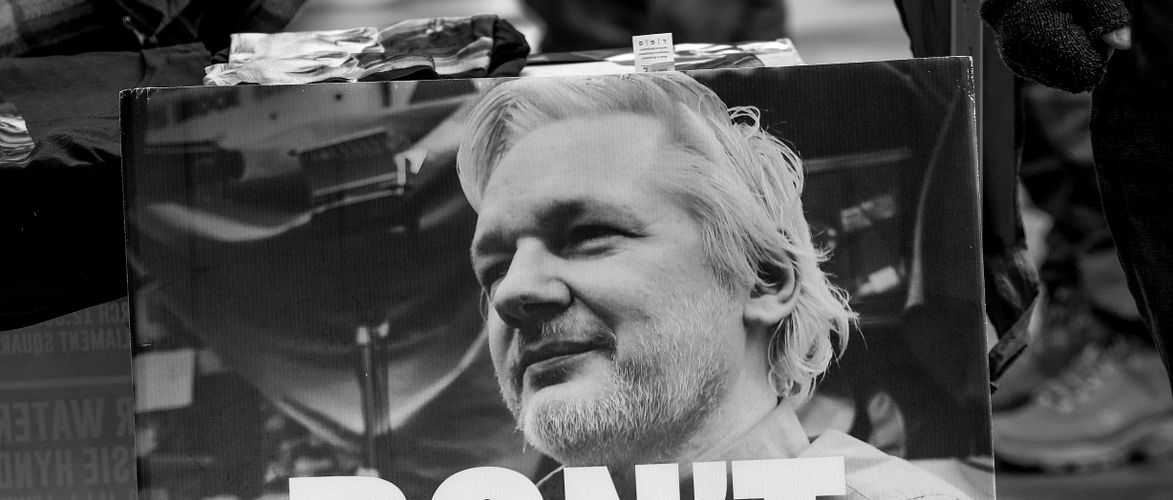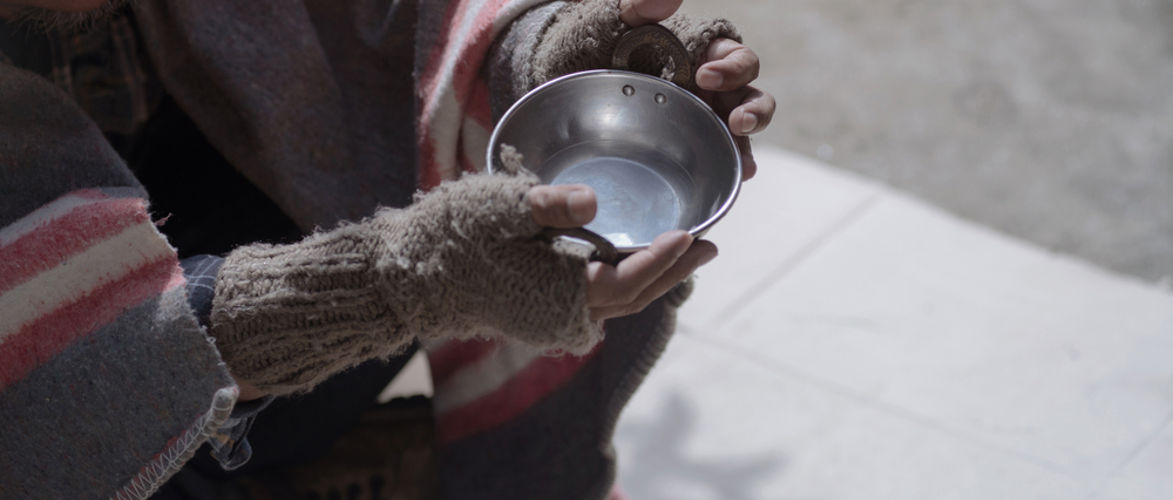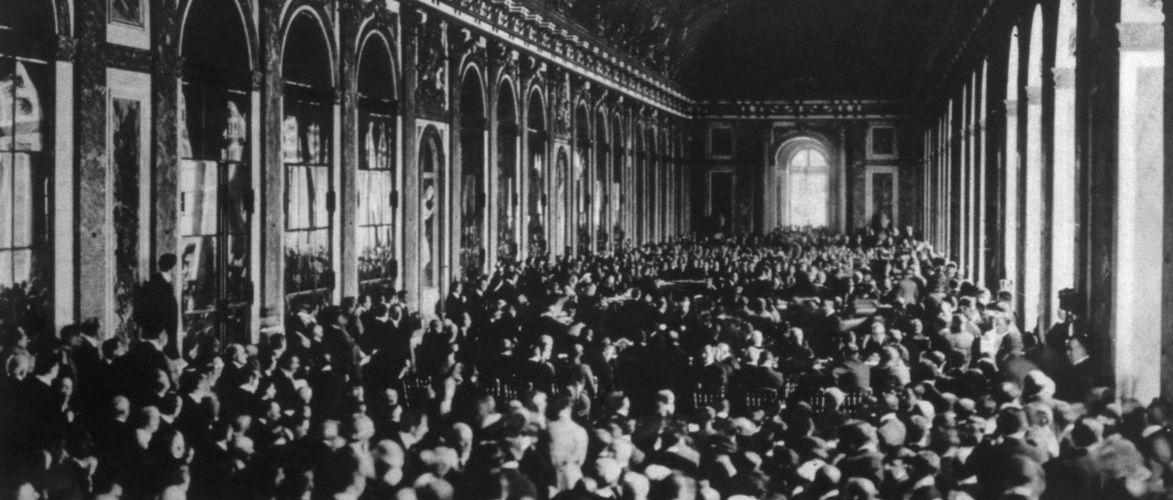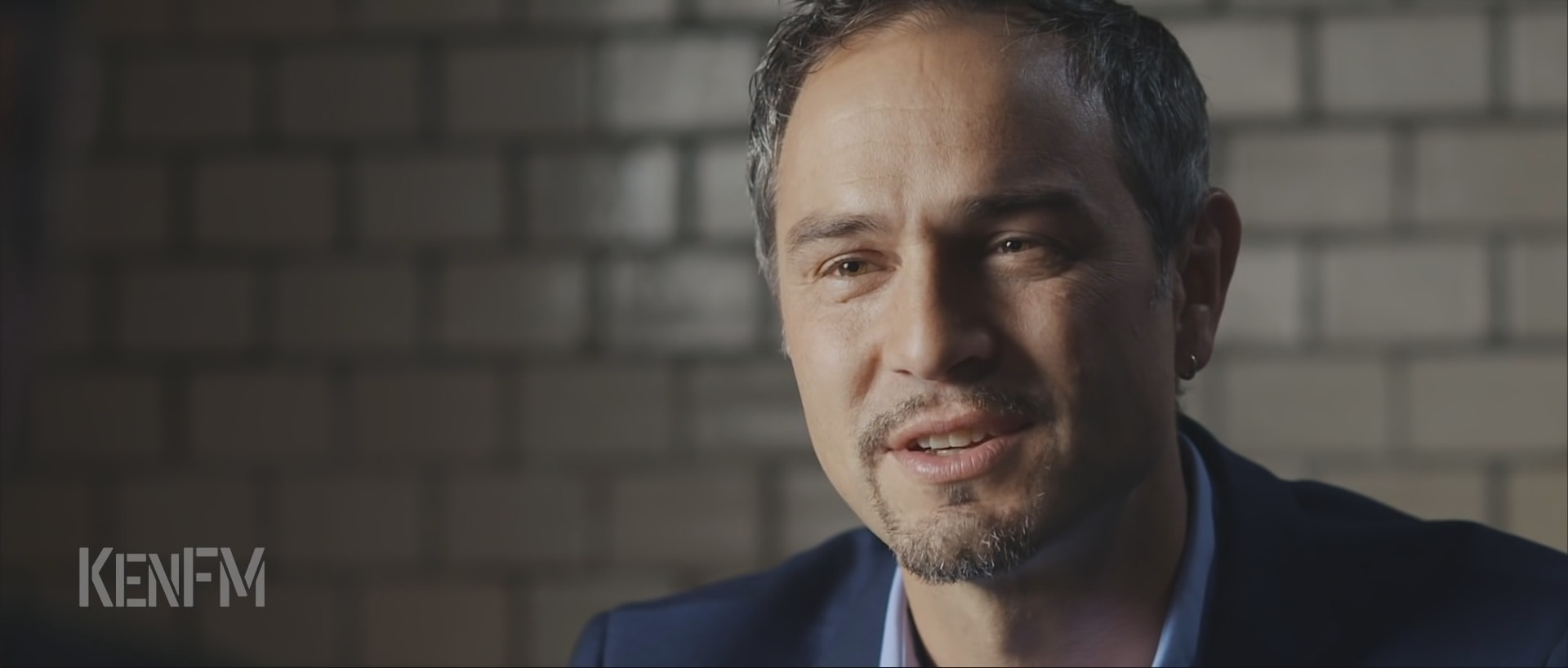By Mathias Bröckers.
A day earlier than expected, the hearings on the extradition of Julian Assange to the USA ended on Thursday. The last day ended in a dispute over whether the Wikileaks founder should be allowed to follow the proceedings in a glass case or on the bench with his lawyers. The presiding judge at Woolwich Court, Vanessa Baraitser, had rejected the request. According to the judge, Julian Assange sitting outside the bulletproof glass box intended for severely violent defendants posed a “danger to the public”. However, such statements are by no means the only harassment Assange faces in this trial, for which the term “Kafkaesque” seems very appropriate – which the public would hardly know, because to get one of the no less than 16 seats in the auditorium you have to get up as early as Craig Murray. The former diplomat and ambassador had always queued up at 6 a.m. to get one of the seats – it is mainly thanks to his reports on the four days of the trial that we know about the spectacle of this trial, which reminds us of Kafka.
The fact that every accused person has the right to defend himself and to the confidentiality of communication with his lawyer is a fundamental element of the legal system. If a defendant is not granted such confidentiality, there can be no question of a fair criminal trial. Certainly not if the entire communication of a defendant with his lawyer is wiretapped and these recordings are passed on to the plaintiff’s party. How exactly this happened in the case of Julian Assange is currently being investigated by a Spanish court, against the founder of the company “Undercover Global”, which Assange is said to have spied on in the Ecuadorian embassy and passed on the data to the CIA. The operation, in which Assange’s conversations with his defense attorneys were recorded, was financed by major donor Donald Trumps and casino billionaire Sheldon Adelson. This was raised by Assange’s defense on the first day of the hearing – as one of the arguments why extradition of the Wikileaks founder should be refused. The extradition is not allowed if the client cannot expect a fair trail before the court demanding his extradition. This must be expected if fundamental principles such as the confidentiality of the lawyers’ discussions have already been flagrantly violated in the past.
Extradition would be excluded as well if the request is politically motivated. In this regard, the defense lawyers presented evidence showing, among other things, how the former U.S. ambassador to Germany, Richard Grenell, who Trump had just appointed as head of the secret services, pulled the strings on behalf of his boss in order to deprive Julian Assange of asylum in the Ecuadorian embassy. The US representative made an allegation before the court that had actually already been refuted by an investigation by the Pentagon itself in 2014, namely that the lives of innocent people had been endangered by Wikileaks’ publications. In the case against Chelsea Manning, the Pentagon General in charge of the investigation had to admit that “no specific example” of such a threat or death could be given. In London, the US prosecutor was also unable to name any specific persons who had really been harmed by Wikileaks publications. However, where there is no damage, there is no lawsuit, and a court that has to strike a fair balance between the benefit of the “deed” (the publication of war crimes) and the extremely unspecific damage in this case would probably not be able to avoid dismissing the case.
Which brings us to the political damage that Wikileaks has undoubtedly caused, for example, with the publication of the “Collateral Murder” video or the emails of the “Democratic National Congress” (DNC), which revealed the fraud of the Clinton team against Bernie Sanders. The image of the world power USA and that of the candidate Clinton, which in turn leads to the political motives to persecute the Wikileaks founder as “public enemy no. 1” and to declare him a non-journalist. To this end, US prosecutor Lewis argued in court that the “Guardian”, the “New York Times” and other former partners of Wikileaks had distanced themselves from Assange because he had put the diplomatic cables of the US State Department on the Internet without blackening their names. This claim was then refuted on the third day of the hearing by a witness for the defense, the ARD journalist John Goetz, who had worked with Wikileaks at the time for “Der Spiegel” and made it clear that the password for access to the documents had first been published in a book by two “Guardian” journalists and that the diplomatic cables had already been copied on various servers before Wikileaks published them. And that Assange had called the US State Department immediately and warned them when he learned about the publication of the password.
On the third day of the hearing, the main question was then whether the British Extradition Act of 2003 or the extradition treaty concluded between the USA and the UK in 2007 is applicable. Paragraph 4.1. of this treaty expressly excludes the possibility that political offences may not lead to extradition. The US representative and also the judge now argued that in this case, however, the British Extradition Act of 2003, in which “political openness” is not mentioned as an obstacle, should apply. So, for an extradition to the USA, the corresponding bilateral treaty should be ignored and the domestic law applied? That would be another Kafkaesque punch line, as it tragically happened in the Swedish extradition case, when the Supreme Court judge used the French translation of the European Extradition Act to decide the validity of the request. This had only been issued by the Public Prosecutor’s Office but not by a Swedish court and Assange’s lawyers had argued through three instances in vain that a valid request must come from a “judicial authority” (a court) and not from a public prosecutor. In the French translation, which speaks of “autorité judicial” but includes prosecutors, the judge then argued and granted the application. It was this absurd legal trick, which made it clear that this was not an ordinary trial under the rule of law but a political trial, that led Julian Assange to flee to the Ecuadorian embassy. As last week’s hearings showed, he is threatened with further legal pranks of this kind from the British judiciary.
“Someone must have slandered Josef K…” – like Kafka’s novel, the persecution of Julian A. also began with a slander. The UN Special Rapporteur Rapporteur on torture Nils Melzer, has documented with his research how, following an enquiry by two Swedish women to the police about whether and how Assange could be induced to have an AIDS test, a report of rape was made to the police overnight and spread in the yellow press. With this fake defamation, the smear campaign and the questionable legal prosecution of the Wikileaks boss began in 2010, which then took him to the high security prison Belmarsh in April 2019.
Three times the questionable Swedish investigations had been stopped and reopened. “Don’t you dare to get cold feet!”, the British judicial authorities had warned the Swedish colleagues by email when they signaled a suspension of the investigation. Behavior like this led the UN representative Nils Melzer to speak of a “conspiracy” by which the authorities of three countries (Sweden, USA, UK) tried to put Assange in prison.
Nils Melzer’s diligent research has now led to the fact that his report on the “psychological torture” to which Assange was subjected in prison, which was drawn up with two doctors in May 2019, is now being taken seriously, at least by some journalists and politicians, so that in the last few weeks, for the first time in ten years, the case has been reported halfway factually and no longer defamatory. However, the outrageous harassment to which Julian Assange is still subjected – “Yesterday my client was handcuffed 11 times, searched naked twice, put in five different waiting cells and his papers were taken away from him,” his lawyer Edward Fitzgerald reported on the second day – is still not a topic for the mainstream media. The fact that the world power USA and its vassals, who are apparently only committed to the rule of law on paper, are taking such inquisitive action against a single journalist, while whistleblower Chelsea Manning is still being detained for refusing to testify against Assange before a secret military tribunal – clearly shows that in 2020 the Middle Ages with their heretic trials and funeral pyres are not over yet. Even if the US prosecutors want to send Assange to Guantanamo “only” for 175 years. So much for progress and the rule of law in the West of “values”. The trial will continue on May 18th, until then Julian Assange will probably stay in prison, according to his lawyer Jennifer Robinson.
Sources:
- https://www.craigmurray.org.uk
- https://english.elpais.com/elpais/2019/07/09/inenglish/1562663427_224669.html
- https://thegrayzone.com/2019/10/10/cia-spied-on-julian-assange-in-ecuadorian-embassy/
- https://www.politico.eu/article/assange-fight-draws-in-trumps-new-intel-chief-ric-grenell/
- https://www.theguardian.com/uk-news/2020/feb/24/julian-assange-hearing-journalism-is-no-excuse-for-breaking-law
- https://www.republik.ch
- https://www.n-tv.de/politik/Er-bleibt-wohl-im-Gefaengnis-article21593680.html?
+++
Thanks to the author for the right to publish the article.
+++
Picture reference: John Gomez / shutterstock
+++
KenFM strives for a broad spectrum of opinions. Opinion articles and guest contributions do not have to reflect the views of the editorial staff.
+++
Support us with a subscription: https://steadyhq.com/de/kenfm
+++
You like our program? Information about further support possibilities here: https://kenfm.de/support/kenfm-unterstuetzen/
+++
Now you can also support us with Bitcoins.

BitCoin address: 18FpEnH1Dh83GXXGpRNqSoW5TL1z1PZgZK










Kommentare (0)